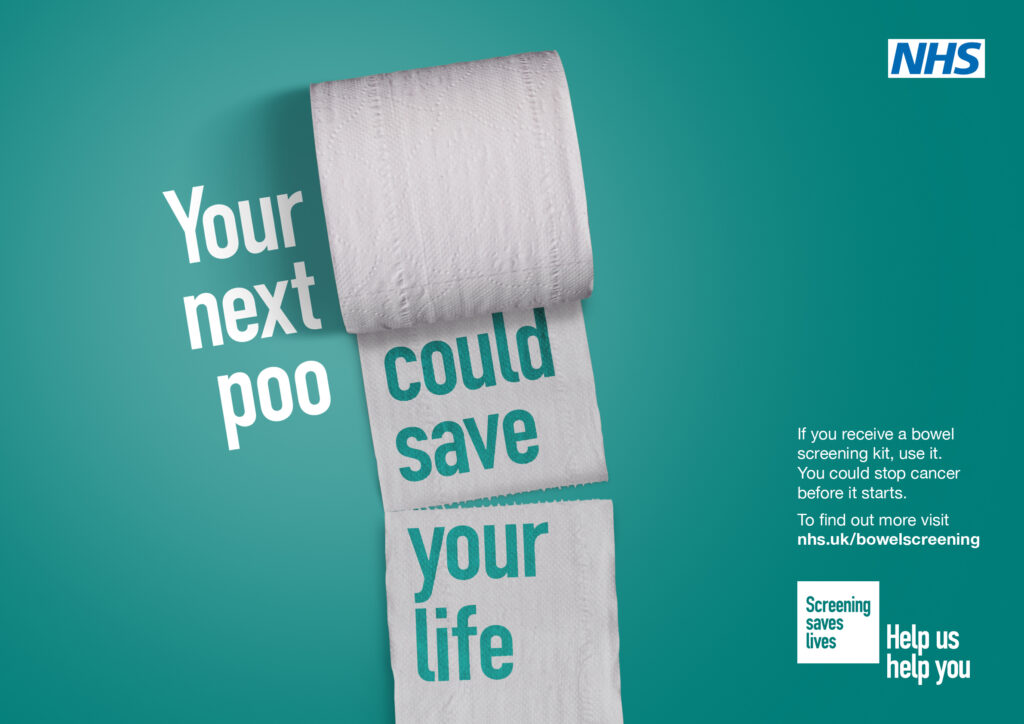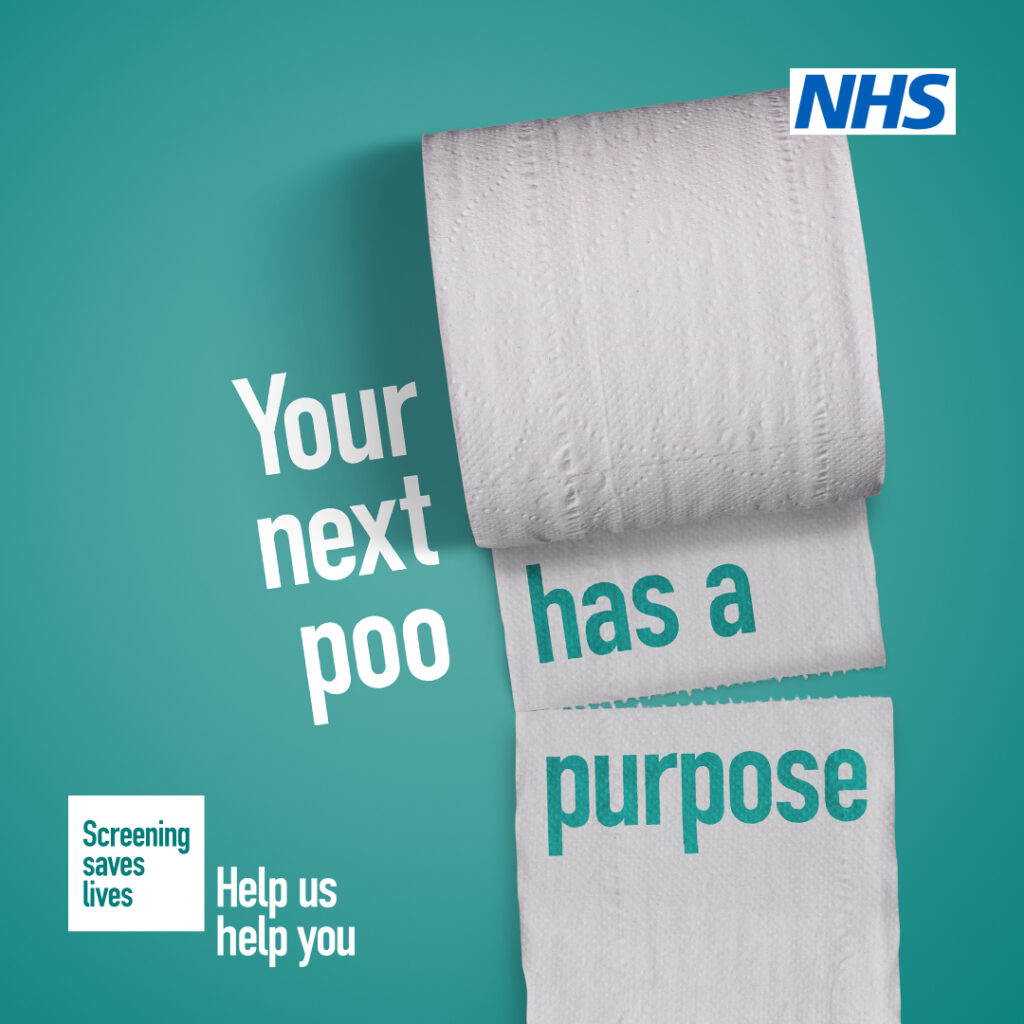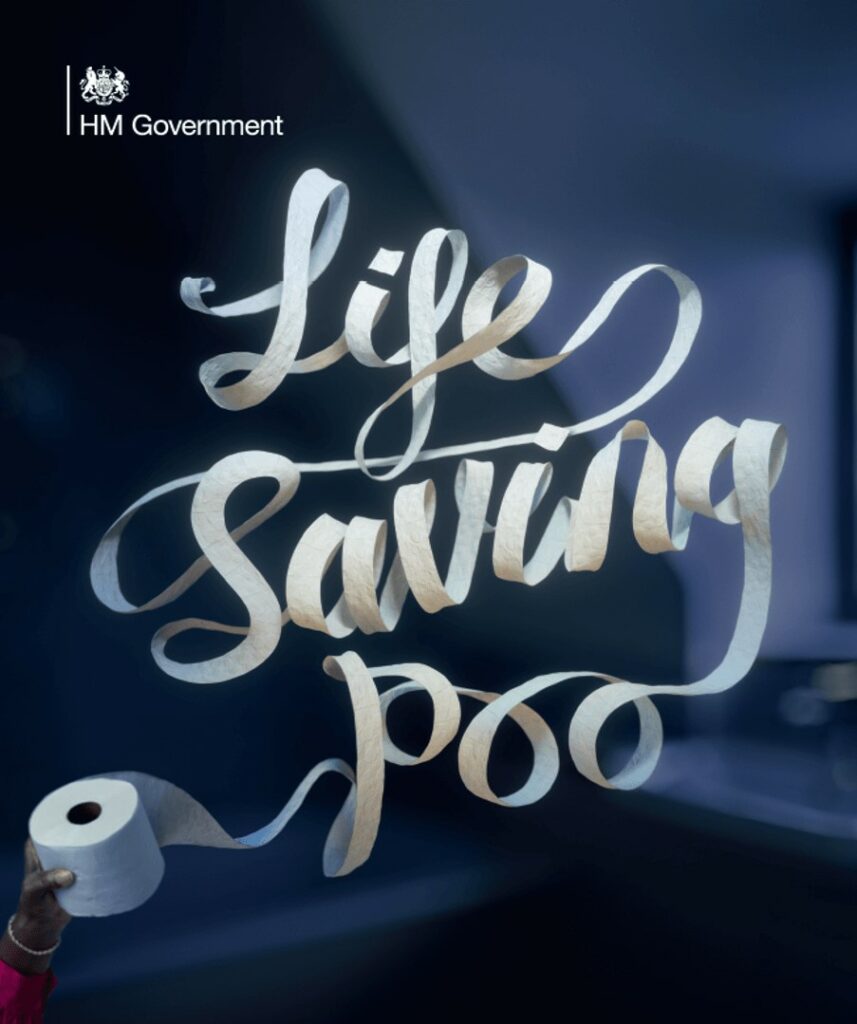
Bowel Cancer Screening Blog
I don’t have any symptoms; do I still need to complete the bowel cancer screening Kit?
Even if you don’t have any symptoms of bowel cancer; you should still complete the home testing kit when you receive it in the post. Bowel cancer screening can identify bowel cancer at an early stage, when it is much easier to treat and can prevent cancer from developing.
Your bowel cancer screening kit will be tested for miniscule amounts of blood in your poo that cannot be detected by the human eye. If you get a positive result, you will be invited to your local London bowel cancer screening centre. You will be invited for a test called a colonoscopy to investigate the cause of the bleeding. During this test, a thin flexible tube with a tiny camera on the end will be used to look inside your bowel. A colonoscopy can find cancer, but it can also find polyps, which are small growths which can potentially develop into cancer over time. If polyps are found, they will be removed during the colonoscopy and sent for further testing. The removal of these polyps can greatly reduce your risk of developing bowel cancer.
When will I receive a bowel cancer screening kit?
You will receive a bowel cancer screening home testing kit every 2 years between the age of 54-75. Even if your previous result was negative and you have no symptoms; you should continue to complete the kit every 2 years until the age of 74. After this, you will stop receiving the home testing kit sent to you in the post automatically. After age 74, you can call the free bowel cancer screening helpline on 0800 707 60 60 to request a kit.
If you do develop any symptoms of bowel cancer at any time, contact your GP as soon as possible, regardless of your previous screening test result. Symptoms of bowel cancer include:
- Blood in your poo (faeces)
- Looser poo, pooing more often and/or constipation
- A pain or lump in your abdomen (tummy)
- Feeling more tired than usual for some time
- Losing weight for no obvious reason
by Phillippa Hickey – Health Improvement Specialist – London NHS Bowel Cancer Screening Programme

The ‘c’ word? Oh, you mean Cancer? – Let’s talk about it!
Discussions around cancer awareness and prevention can sometimes generate much fear and prevent individuals from arming themselves with the necessary tools and wisdom to not only detect cancer early, but also prevent it.
Not many people are aware but bowel cancer is the third most common cancer in both men and women and the second leading cause of cancer deaths in the UK. This frightening statistic starkly justifies the importance of opening ourselves up to leading more and empowering ourselves to take practical steps to reduce our risk of getting bowel cancer.
As a health improvement specialist working with diverse communities across North-East London, I have the important responsibility to make conversations around bowel cancer screening more ‘easily digestible’. However, some individuals find conversations about the ‘bowel’ and ‘cancer’ highly ‘unpalatable’ and embarrassing – it’s a double whammy and the perfect recipe for disaster for most, as talking about these topics requires a certain degree of comfort, openness, transparency and more importantly fearlessness.
My work in community settings involves working with those aged 50 and over. Working with this age group is very insightful because it is an opportunity to learn about health beliefs and general attitudes to health which have become quite stable and ingrained over a number of years over a number of years. One particular belief which appears time and time again is that ‘a cancer diagnosis always means imminent death’ . I have witnessed the power of this fear provoking belief (or shall I say myth!) in preventing people from engaging in discussions about cancer and prevention- it is a taboo topic despite advances in technology for cancer prevention and treatment, mainly due to an inaccurate belief that has been consistently perpetuated.
We completely understand the fear associated with cancer and sadly it can’t always be prevented or detected early and may lead to death but I always ask individuals, ‘is it better to fearlessly talk about common cancers like bowel cancer and participate in life-saving initiatives like the NHS Bowel Cancer Screening Programme and possible find cancer early when it is more treatable, than to avoid the conversation because it is too uncomfortable or too frightening?’
Following a workshop I facilitated on bowel cancer and screening, I asked a gentleman, ‘what would motivate you to participate in bowel screening now?’ This was his response; ‘Now that I know more about bowel cancer and screening, I owe it to myself to do something about it sooner rather than later. I would rather know if my health is fine now, than to wait for something to go wrong and by then it may be too late‘.
When individuals are encouraged to see another perspective, feel a little more open to talking about the bowel and supported to overcome any deeply held fears about cancer, knowledge becomes power and a call to action and this would be my wish for anyone reading this blog. We have all heard ‘prevention is better than a cure’ and this is exactly the purpose the NHS Bowel Cancer Screening Programme serves. The bowel screening programme is saving hundreds of lives every year through early detection and prevention. An easy-to-complete test kit for those registered with a GP is automatically sent to individuals in the post.
More information about the Bowel Cancer Screening programme and eligibility criteria is available here.
If you have received and NHS bowel screening test kit, take action now – it could save your life.
by Lena Khagram – Health Improvement Specialist – North East London NHS Bowel Cancer Screening Programme
NHS Bowel Cancer Screening Programme: Empowering Your Health Journey
The thought of bowel cancer can be a cause for worry; this short piece hopes to ease your concerns and guide you in what you can do to be tested.
The Importance of Bowel Cancer Screening
Bowel cancer screening involved a simple test which requires you to provide a stool (poo) sample. While it may not be the most comfortable topic to discuss, rest assured, it plays a vital role in the process. Screening for bowel cancer helps to detect cancer at an early stage and can prevent bowel cancer before it starts.
Am I Eligible for the Bowel Cancer Screening Programme?
This is one of the most common questions people often ask us, and we understand why.
To receive an invitation every two years, you must be registered with a GP and aged between 54 and 74. However, there is no need to worry if you are not in this age range. In 2024, we will start inviting people aged 50 and 52 years of age to take part in screening.
If you are older than 74, you can call the London Bowel Cancer Screening Hub on 0800 707 6060 and ask them for a bowel cancer screening kit.
Whatever your age, if you develop any symptoms of bowel cancer at any time, contact your GP as soon as possible.
How Do I Know if I have Bowel Cancer Symptoms?
It is important to remember that experiencing any or more than one of these symptoms doesn’t automatically mean you have bowel cancer. However, pay attention to any changes in your body just in case.
Here are the key signs to look out for:
- A change in bowel habits. Have you noticed any differences in your stool, such as having softer or harder poo, or experiencing episodes of diarrhoea or constipation? Paying attention to these changes in important.
- A change in frequency. Are you going more often than you normally do? Significant changes in your toilet visits? That should not be ignored.
- Blood on the paper or in your poo. The sight of blood in your stool can be alarming and it is crucial to have it checked by a healthcare professional promptly.
- Abdominal pain and bloating: unexplained discomfort in the abdomen and persistent bloating should be evaluated to determine the underlying cause.
- Unintentional weight loss: if you have experienced a significant drop in weight without actively trying to lose it, it is important to investigate the reason behind it.
- Unexplained tiredness: Feeling excessive fatigue without an obvious cause can be concerning. It is important tot discuss this symptom further with your doctor who will help you to identify any underlying issues.
If any of these symptoms last for three weeks or more, schedule an appointment with your GP so they can provide the best possible care for you.
Bowel cancer screening is a proactive measure that increases the chances of early detection and can prevent bowel cancer before it starts. So, don’t hesitate to complete the bowel cancer screening test kit you are sent or ask for another one if you did not get round to returning it. If you are younger or older than the starting age, the follow the directions above.
by Vanessa Nzekwu – Health Improvement Specialist – London NHS Bowel Cancer Screening Programme


